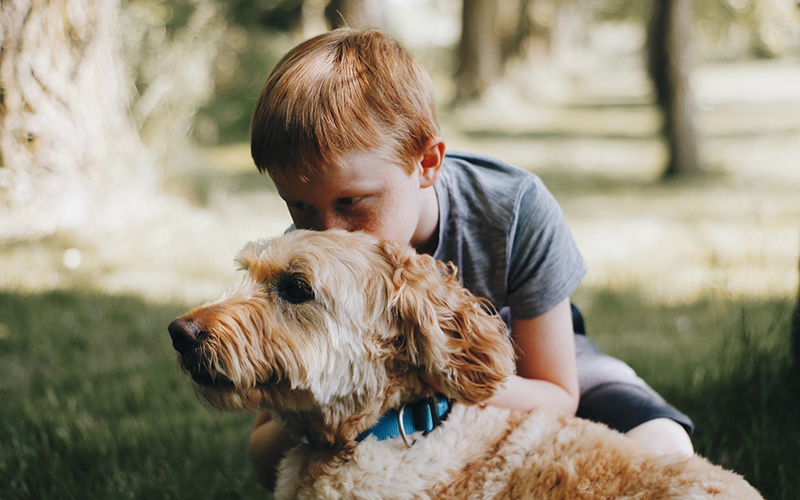
It was the right story at the right time: six months into COVID-19, as the world was reeling from the relentless blows of a ballooning pandemic, along came a warm, fuzzy tale about kids and dogs that hit everyone in the feels.
Media across the world lapped up research led by Associate Professor Hayley Christian which found that having a family dog – and regularly playing with it and taking it for walks – could boost young children’s physical and emotional health.
High-reach outlets from the BBC, CNN, Fox, The Times of India and Xinhua to the New York Times, Washington Post, Daily Mail, Modern Dog Magazine and This Dog’s Life carried various takes on the research, with many seizing on the idea that children are more likely to be kinder and less likely to have emotional problems if there’s a dog in the family.
The results focused on the benefits for preschool-aged children and followed earlier research by Associate Professor Christian and team that having a dog had a range of benefits for school-aged children, and that dog ownership has benefits for stress and mental health in adults.
The study found children aged 2–5 years from dog-owning households had increased pro-social behaviours like sharing and cooperating and were less likely to have conduct or peer problems, compared to children without a dog.
Associate Professor Christian said the beneficial impacts for young children had a lot to do with how often children played with or walked their family dog, but even the researchers were surprised by the strength of the results.
“While we expected that dog ownership would provide some benefits for young children’s wellbeing, we were surprised the mere presence of a family dog was associated with many positive behaviours and emotions,” Associate Professor Christian said.

Associate Professor Christian said the positive response from around the world showed the timing was right – with a pandemic in the background, people were ripe for good news – but also reflected the strength of the study, which involved more than 1,600 families, and the fact there had previously been little research about the impact of dog ownership on such a young age group.
“The way the research was picked up by the international community was just incredible – it was such a good opportunity to shine a light on the great research coming out of our Institute here in Perth,” she said.
Associate Professor Christian cautioned that while research was increasingly showing the child health and developmental benefits of dog ownership – a choice many had made during the pandemic – it involved a significant responsibility and commitment that shouldn’t be rushed into.
- Associate Professor Christian has previously been supported by a National Health and Medical Research Council Early Career Fellowship and has received two consecutive National Heart Foundation Future Leader Fellowships.
- She is also a Chief Investigator on the Australian Research Council Centre of Excellence for Children and Families across the Life Course, which is a $32 million investment to deliver transformative research and translation to break the cycle of deep and persistent disadvantage and improve outcomes for all Australians.
